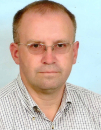
Academic Writing and Research Methods
Academic Writing and Research Methods
Data is displayed for the academic year: 2025./2026.
Lecturers
Exercises
Lectures
Seminar
Course Description
To introduce students into logic of social science scientific research and to answer the questions such as: what, why and how we conduct researches; to introduce them to the basic categories and rules of scientific work. Besides, to train them in written scientific style, i.e. in substantive and formal creation of all sorts of scientific texts.
Study Programmes
undergraduate
Military Engineering - study
(1. semester)
Military Leadership and Management - study
(1. semester)
General Competencies
Learning Outcomes
- to define and differentiate logics of quantitative and qualitative research
- to comprehend relationships of theory, hypothesis, research design and type of required data and inferential logic of scientific research
- to recognize, describe and define phases of research as well as research designs
- to recognize and describe various methods and techniques of data collecting
- to understand logic of sampling as well as to recognize and describe various types of sampling
- to recognize, describe and analyze various measurement levels and related to them possibilities of inference
- to apply knowledge through the computer analysis of basic univariate and biariate problems
- to acquire the skill of organization, structuration and writing of scientific report of empirical research as well as to integrate and apply acquired knowledge into such written form
- To acquire skills of academic writing in all phases of scientific work
- to recognize key arguments of other authors and development of capabilities for expression of informed attitude in the scientific text
Forms of Teaching
Lectures
Ex cathedra lectures and interaction with students
Seminars and workshopsIndependent presentation and students' group work based on required literature readings and moderation of the lecturer
ExercisesApplication of learned knowledge in computer work
Independent assignmentsStudents will get tasks for seminars and exercises which will be individually mastered
Multimedia and the internetUse of SPSS and other software
Week by Week Schedule
- Lectures: Scientific work as a textual genre and its realization through various types of research Seminar: Scientific work as a textual genre and its realization through various types of research Exercises: Scientific work as a textual genre and its realization through various types of research
- Lectures: Organization of research activities and writing different parts of a text Seminar: Organization of research activities, writing different parts of a text and introduction to computer and informatics tools Exercises: Organization of research activities and writing different parts of a text
- Lectures: Research problem and research design Seminar: Research problem and research design Exercises: Research problem and research design
- Lectures: Operationalization: from theory to the measurement Seminar: Operationalization: from theory to the measurement Exercises: Operationalization: from theory to the measurement
- Lectures: Measurement levels and types of variables Seminar: Measurement levels and types of variables - application of computer and informatics tools Exercises: Measurement levels and types of variables
- Lectures: Instruments, scales and indexes Seminar: Instruments, scales and indexes - application of computer and informatics tools Exercises: Instruments, scales and indexes
- Lectures: Colloquium 1
- Exercises: Colloquium 1 correction (2 hours) Lectures: Sampling, scientific inference and presentation of data in scientific texts Seminar: Sampling, scientific inference and presentation of data in scientific texts Exercises: Sampling, scientific inference and presentation of data in scientific texts
- Lectures: Types of scientific observation and experiments Seminar: Types of scientific observation and experiments and appropriate computer statistical analysis Exercises: Types of scientific observation and experiments
- Lectures: Survey, interview and focus groups Seminar: Focus groups and multiple computer data transcription Exercises: Focus groups
- Lectures: Archival, content, and discourse analysis Seminar: Archival, content, and discourse analysis - computer programs Exercises: Archival, content, and discourse analysis
- Seminar: Survey and interview Exercises: preparation for Colloquium 2 and written exam
- Lectures: Colloquium 2 Exercises: Colloquium 2 correction (2 hours)
- -
- -
Literature
(.), Burnham, Peter / Gilland, Karin / Grant, Wyn / Layton-Henry, Zig, 2006: Metode istraživanja politike, Fakultet političkih znanosti, Zagreb,
Soeters, Joseph / Shields, Patricia M. / Rietjens, Sebastiaan (2014.), ROUTLEDGE HANDBOOK OF RESEARCH METHODS IN MILITARY STUDIES, Routledge
For students
General
ID 282155
Winter semester
4.0 ECTS
L0 English Level
L1 e-Learning
20 Lectures
10 Seminar
15 Exercises


